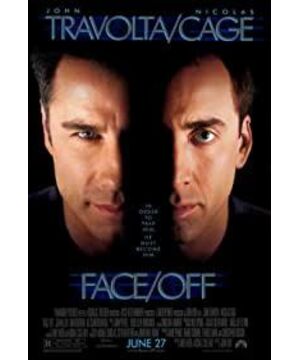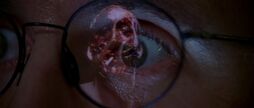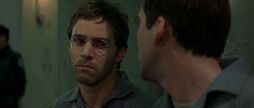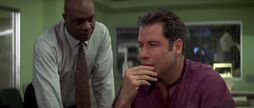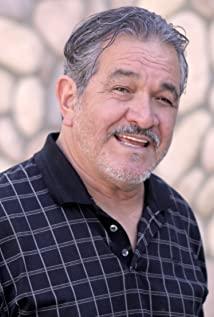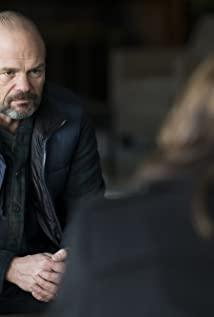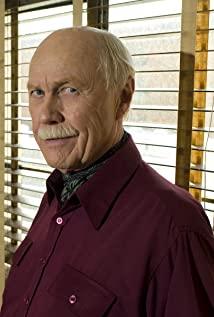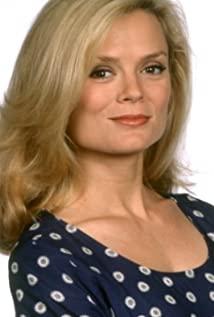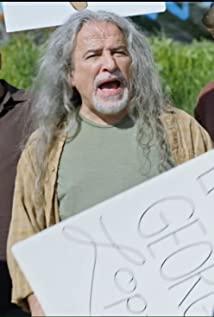"One person plays two roles" is undoubtedly a very attractive way of interpretation that often appears in movies. "This is not only because the similar design increases the difficulty of filmmaking, it becomes a challenge to the film narrative; but also because of the potential misrecognition, misunderstanding, misunderstanding, mischief, good luck and other dramatic plots that an actor plays in two roles. It has potentially contained the mirror structure and the situation in it." And also on this level, Fujii (female) and Hiroko in "Love Letter", Arthur (Sean Archer) and Troy (Castor Troy) before and after "face change" in "Face Change", on the level of "mirror structure" Constitutes an interesting correspondence.
In "Love Letter", we as the audience know that Hiroko and Fujiiki (female) are played by the same person, and the person in the play does not know the existence of the same other self at the beginning of the story. Affection. That’s why we can see that Hiroko’s desperate pursuit of the deceased Fujii tree (male) under the plain and almost casual narration created by "Love Letter", and the extremely desperate pursuit of him The deepening of ideal self-narcissism under love. And as the story progresses, everything becomes more cruel for Hiroko. Fujii (female) and Hiroko, in this story about "a pair of girls who look like two drops of water", Bozi will always play only A "shadow of the shadow" role, she stubbornly hopes to follow her absence to be present, but in fact it just proves her eternal absence in this three-person story.
However, for the agents Arthur and Syndicate Troy in "Face Changing", their "face changing" is undoubtedly conscious. They are well aware of the existence that has the face of "I" and occupies the image of "I" in the same world. And this kind of deep and even cruel connection is linked by repeated violent deprivation and eternal loss: first, when the hero Troy shot and killed agent Arthur, he accidentally caused the death of Arthur's younger son; Then there is Arthur’s first experience of looking in the mirror after "face change", facing the loss of his own face-the thing that identifies "I"-and facing the face that once belonged to Troy-the absolute he hated In the sense of "other", Arthur must refer to himself as the "other" he hates, so that he can fill the first vacancy left by the loss of the youngest son. And this humble wish to fill the vacancy forced him to experience the pain of being stripped a second time-it was a deep entanglement wandering in the madness of losing oneself/finding oneself. Therefore, the Arthur we saw desperately beat the mirror and vented his dissatisfaction with a loud yelling desperately. The feeling of deprivation brought about by "face changing" is always two-way. When Arthur experienced the second deprivation, Troy, who was awakened from a vegetative, faced the great fear of uncovering the bandage and losing his face. To fill the vacancy caused by the deprivation, or as a paradoxical escape from the deprivation that has already been caused, he chose to act, choose to use another face, and to deprive others while continuing to live in Troy. ——Arthur, life after changing his face is ruthlessly teased. The "face-changing" Troy inherited Arthur's family and position, and inherited all the social relations that originally belonged to Arthur. He completes the revenge for the lack of deprivation by stripping off everything that originally belonged to Arthur, and this kind of revenge directly leads to the intensification of the experience of being stripped. In the "battle" of the detective played by Troy searching for the hero played by Arthur, Troy's younger brother unfortunately died unexpectedly, and in the constant escalation of the feeling of exclusion and loss, Wu Yusen completed his first half of the film "The Face Changing" Architecture.
Therefore, we can say that Hiroko’s desperate pursuit of Fujiiki (male) in "Love Letter" is based on the passing of Fujiiki (male), that is, the absence of his love partner himself. This sense of loss is deepened in the story as the absence of the love of his romantic partner. At the end of the story, Iwai Shunji brings us a kind of cruelty that is completely lost in the plainness of nothingness-everyone becomes an integral part of this sad story, and everyone is accused of one who has been lost. Or being deprived of existence forever, "Akiba is deeply in love with Hiroko, but Hiroko cannot forget Fujii Shu (male). Akiba’s female disciple desperately loves her teacher, but knows that she has no chance to replace Hiroko. Zeng desperately tried to attract the attention of the girl tree, and even spared no effort to express this love in the way of adolescence, but when the tree (female) finally realized and embraced the same love, the tree (male) had already left the world ". This is a complete loss through loss, the deprivation of the body caused by death, to the realization that "I" is just the reflection of the "I" lover loving others, a double deprivation from the body to the spirit process. This is a desperate attempt to follow the "absence" to the "presence", but backfired a process of drifting away from the "presence".
As for "Changing Face", the rejection, rage, immersion and even fascination of "I/None" by Arthur and Troy we have seen are always accompanied by the double clue of "lost/regain". And along the axis of Arthur/Troy, we will also see (son of Arthur) Mike/(son of Troy) Adam, (wife of Arthur) Eve/(love of Troy) Sasha, etc. The wandering and floating of the double track.
At the beginning of "Changing Face", Mike, the boy on the merry-go-round, has a simple smile. Under the camera, everything runs smoothly, even monotonous and lengthy without thinking. However, the superficial meaning of this scene is inevitably destroyed by a potential sense of fear. In other words, in Wu Yusen's simple film narrative, what the audience in the theater expects is exactly the inversion of this surface text-the possibility of a horrible fact, even though they cannot know exactly what is hidden under the surface. Or something is brewing. Finally, we saw that simple Mike died under Troy's gun. And this incident, as the beginning of a “missing” in the Lacanian sense, became the basis for the unfolding of the entire incident and plot.
Accompanying the death of the youngest son was the double loss of the detective Arthur who was referred to as "the name of the father": as a physiological father, he was deprived of his children; as an FBI agent, a social order The statutory defender of witnessing the loss of life also means a loss of responsibility and obligation to some extent. This cruel feeling of exfoliation has always accompanied and prompted Arthur to start a desperate hunt for the murderer Troya. He consciously disciplined himself as a rigorous, boring, and rigid existence. He no longer has the ability to smile. He became a rigid and severe boss, a failed husband, and a father who once again neglected his duty in the face of his rebellious daughter, Jie Mei. Just as Troy pointedly pointed to Arthur before changing his face, "What can you do if you lock me up? You can only drive your wife and daughter crazy." And Troy’s words to Arthur’s daughter Jiemei seem to be equally applicable to Arthur, "This is not the real you. You changed when Mike died. You have been hiding under the mask, hoping to avoid the pain." Only when Troy experienced this almost tragic deprivation could he realize the deep sorrow after Arthur's "face change": "I can't get back what I took away from you."
Therefore, to a certain extent, Arthur's persistent and almost desperate pursuit of Troy, and the psychological motivation behind this desperate behavior to compensate for the death of the deceased, are similar to the refusal of Fujiiki (male) in the "Love Letter". Died, and the blogger who persistently sent the "love letter" to the "dead" address is exactly the same. They all need a kind of almost paranoid despair, refuse to bury their memories in their graves, refuse to wipe out the past, and continue now. That's why Arthur emphasized to the plastic surgeon, "I have a scar. It is very important. After the task, please put it back. This is a very important sign." That's why he said to his wife time and time again, "If this scar moves one inch to the left, Mike will not die." Although his wife Eve persuaded him, "If you want to, the wound will heal." However, for Arthur, "this shadow will never pass." It is a deep unforgettable, unwilling to forget. It was an almost desperate acknowledgment of having been there.
Then, Arthur willingly but unwillingly became the role of Troy. He began to try to play the role of Troy to "control everything". However, Troy's sudden awakening and the "face change" of tactics pushed Arthur towards The bottom of "everything is out of control". And only when he learned to pick up Troy—his face and "personality mask" at that time, did he seem to have the place to regain those concealed by the loss of the youngest son. As a result, we saw Arthur's incredible completion of his nine-death escape, and we saw Troy's youngest son Adam inadvertently filling in the vacancy left by the dead son-Mike. And by successfully protecting the youngest son of Troy, the former failed father and negligent detective Arthur was able to relive the state of the “imaginary” (the imaginary) that once belonged to him in the Lacan sense, “this is a A full and perfect world, without any form of scarcity and exclusion".
For the other protagonist of the story, Troy, he also arrived at the scene along his absence. When he lost the face of Troy, when he began to try to play and understand Arthur, he not only released his brother as a tainted witness, but also because he inherited Arthur’s social relationship, and regained those lost in Things in his life: he became a hero in New York, he talked to the president, he gave Arthur's wife the long-lost romance and warmth, he came forward to protect and taught her boyfriend who tried to rape Arthur's daughter. For all of this, Troy almost admired his performance of "Arthur" in an extremely "narcissistic" posture after "face change". He is like the baby sitting in front of the mirror in Lacan's remarks. He sends out a "series of actions", and in this game-like play, what he tries to prove is only Arthur with a Trojan kernel. This "mirror" The relationship between the various actions of the image and the reflected environment, as well as the relationship between this responsible latent image and the reality it reproduces". And through the constant parody of Arthur, Troy almost forgot to appreciate the various performances of the self in the mirror, thus experiencing the body of Arthur who did not belong to him, experiencing him "with other people, and even with the surrounding objects." Relationship". Therefore, when faced with the "I" but "not me" face in the mirror, Troy rarely has Arthurian anxiety, and he can proudly declare to the mirror: "I'm the king". In other words, the changed face of Arthur seemed to unconsciously identify with Arthur's role, although he argued to his brother that his identification was only a superficial, and the purpose was to facilitate the better continuation of Troy’s lifestyle as a Troy. . However, just like the baby in front of the mirror, "the subject has identified an influence" itself will also undergo corresponding changes, even if the subtlety of this change is difficult for the subject to perceive. And from the two-way structure of "Changing Face" for Arthur and Troy, what we see is a kind of desperate recognition that is different from "Love Letter", which arrives at the scene along the way of absence.
In "Changing Faces", the most fascinating scene is the head-on confrontation between two "face-changing" people who are not at odds with each other. It is different from the brief encounter between Hiroko and Fujiiki (female) in "The Love Letter". The confrontation in "Changing Face" is frontal and direct. In these confrontations, the intention of "mirror" is repeatedly used, which gives the play a strong mirror image.
In the first confrontation after the "face change", in prison, Troy has become Agent Arthur. And when the prison door opened, the eyes intersected, and the smile on Real Arthur's face suddenly condensed and stiffened. Facing the prisoner Arthur with a stunned look, Troy, after changing his face, began to joke with his own style: "It seems to be looking in a mirror, but it is not." He contemptuously explained to Arthur, the owner of his body, the scenes of "good drama" directed by him. When Arthur, the escaped prisoner, came to the home of the Troy Hupen, under the influence of drugs, facing himself in the mirror, he said meaningfully or meaninglessly, "I am not me, I am me. Not me, Troy... Arthur, Troy, Arthur, I'm not dead, I am me" This is an almost desperate identification of self-identity.
In Lacan's "mirror theory", the baby's behavior actually contains "double misunderstanding and it: when he refers to his mirror image as another child, he refers to the'self' as the'other'. ; And when he refers to the image in the mirror as himself, he regards the fantasy of light and shadow as real-confuses the real with the fiction, and thus began a lifelong fascination with his own mirror." For Arthur/Troy, When they face the "I" and "not-me" in the mirror, they can neither identify the "self" as a complete "other", or we can say that whether it is Arthur or Troy, it seems that they are both On its own level, it refuses to identify with the "personality mask" that the person it plays should have, that is, this society gives a detective/hero, hero/villain the role it should have. As a result, we have time and again seen "villain" Arthur's refusal to kill in the bloody killing, and saw "agent" Troy's cruelty against "villain" Arthur, in the name of encircling terrorism. Slaughter. However, their faces make them unable to regard the fantasy of light and shadow in the mirror as reality, and they cannot confuse the distance between reality and fiction, even though they also have a brief fascination with their own mirror images (such as Troy’s not impossible "I am the king" Announcement) or even confusion (for example, when Arthur desperately learned that he was regarded as Troy and would stay in prison forever, he almost unconsciously brought himself into the role of Troy and chose the behavior of collective prison escape; and When Adam appeared in front of him, he almost unconsciously regarded Adam as a proof of Mike’s “presence”, and confused himself with Troy at the father level), in fact, accompanied by two-way deprivation and deprivation Unfolding, the entanglement between the individual and the "I", the "I" in the sense of the actor and the "I" in the sense of the actor is also constantly escalating.
In a quiet bathroom, when Arthur and Troy’s muzzles were pointed at themselves in the mirror at the same time, the object they vowed to be inconsistent with and put to death, they found that this "non-me" belonged only to "me". The real phantom. Facing the mirror, the expressions of Arthur and Troy passed a wave of complexity, and in this meaningful scene, life unfolded in a surprisingly dislocation manner. In this scene, the viewers and the people in the play together bring this confusion of "I" and "non-me" to the culmination-"The noble face becomes the passport of the despicable, but the despicable face is the noble. The epitaph of the author".
At the end of the story, Arthur’s smiling face appeared in the dazzling light. Justice and evil finally returned to their original positions. The rigid and boring righteous defeated the cynical evil, and through the act of "face changing" While the righteous found justice, they also found the warmth of the abandoned home. Arthur smiled and hugged his wife and daughter. This is the ending of a reconciliation between father and daughter, husband and wife. At the end of the film, the absent "son of the son" is also the innocent son of the evil man. To be filled. Therefore, we can say that "Change Face" has completed a true "multiple rescued" ending, and with this "multiple rescue" theme, "Change Face" descends from the height of the imbalance between good and evil, and returns. In the almost vulgar narrative of the middle-class home. In fact, from the point of view of "mirror theory", the ending of "Change Face" is almost disappointing. The villain is still a villain, and the agent is still an agent. When the suspense cannot be created in this overly bizarre story, in the second half of the film, Wu Yusen can't help but bring the film back to the ordinary gunfight. The old way of filming: cats and mice. Therefore, at the end of "Change Face", we are almost tired of discovering how clear the distinction between good and evil is after all the storms. After all the confusion and loss, it is still clear.
At the end of "Love Letter", Hiroko was crying Fujii Tree's name in a valley full of sunrise. When Fujii Tree (female) wrote the "love letter" that would never be sent, we saw It is a kind of tolerance and responsibility for "absence" and "absence".
Perhaps, as people often say, the friendship between the rivers and the lakes is good. For Wu Yusen, he is always interested in the big stories in the context of the heart-stirring. When discussing ambiguous little emotions, Wu Yusen always shows his weakness in experience. His experience of emotion seems to be one-way, superficial, and either good or evil, yet it is so simple and full of affection. Therefore, at the end of the story, the struggle and entanglement between "I" and "non-me" seems to be a dispensable decoration, which no longer has the power to point people's hearts. Just like in his "Changing Face", Troy would say, "It seems that it is more appropriate for us to be ourselves." After all, in Wu Yusen's place, evil and righteousness are always two incompatible opposites.
View more about Face/Off reviews


